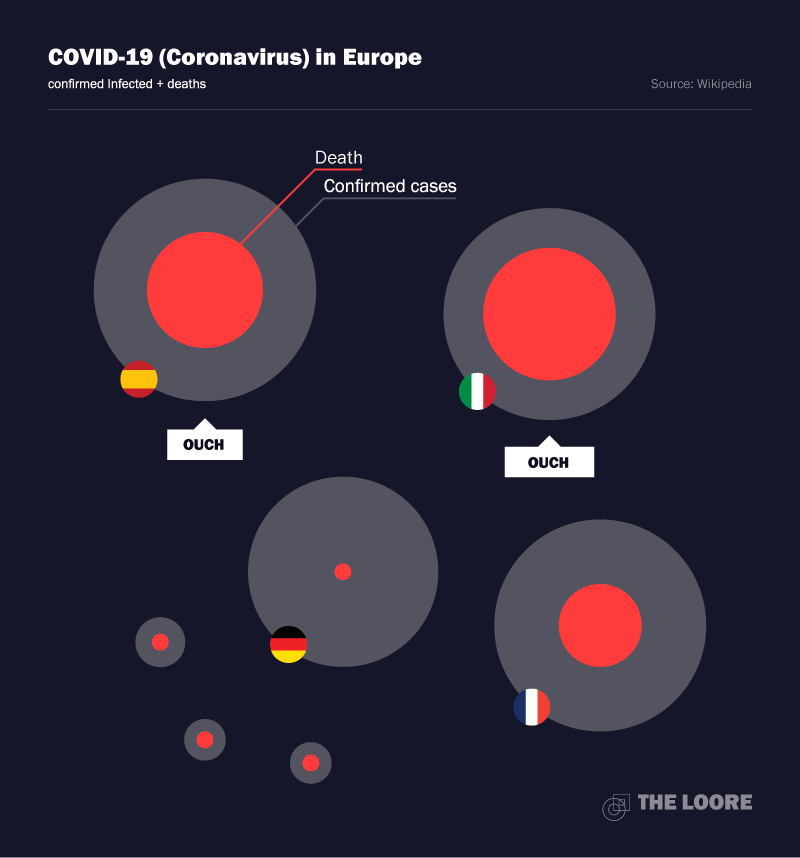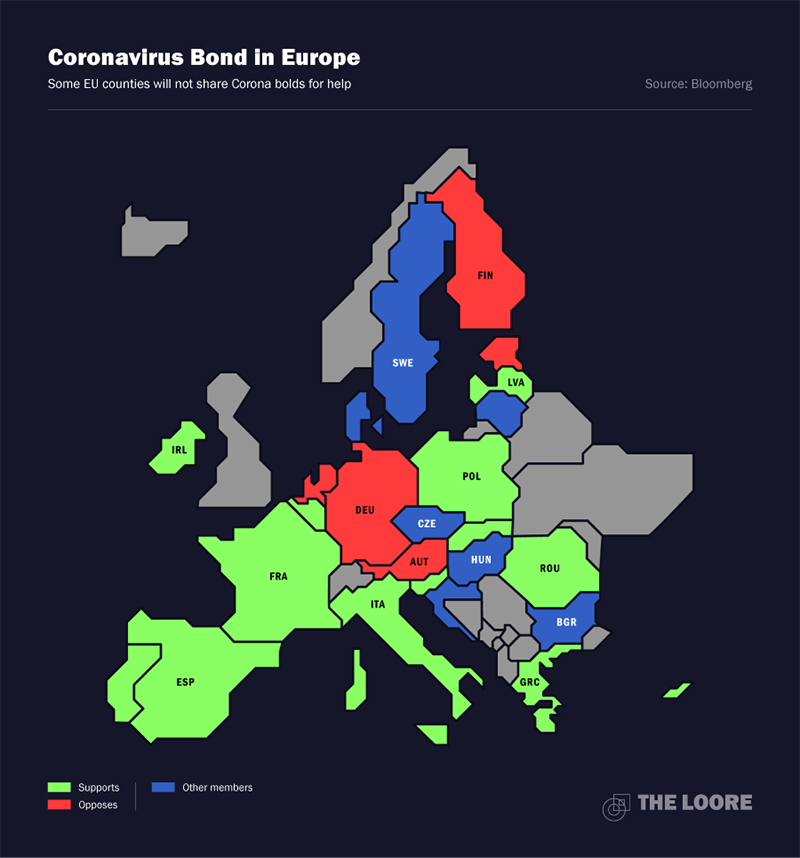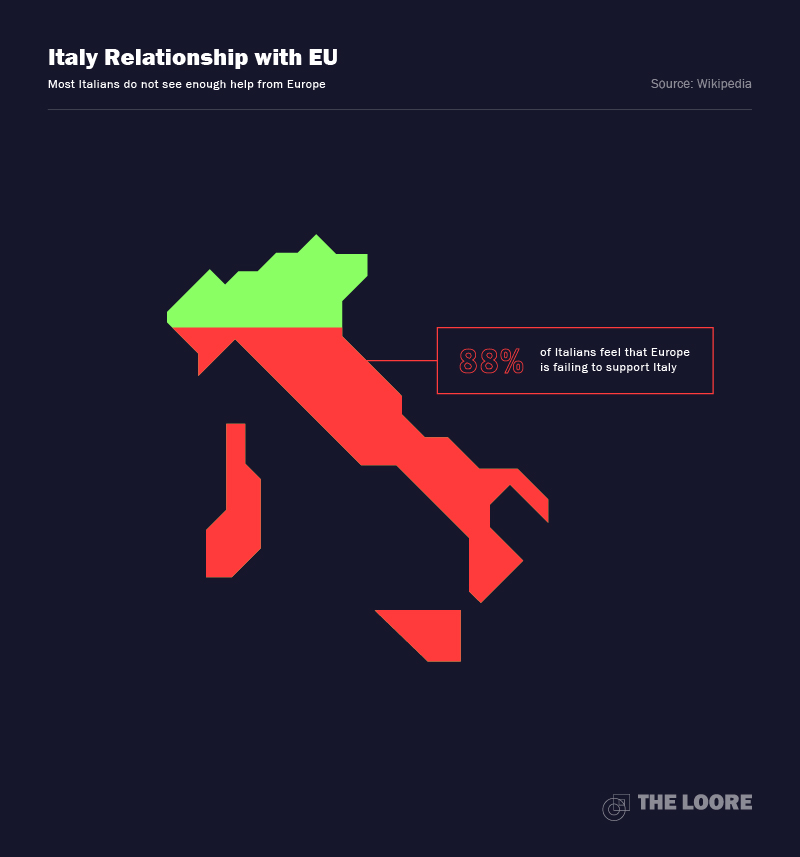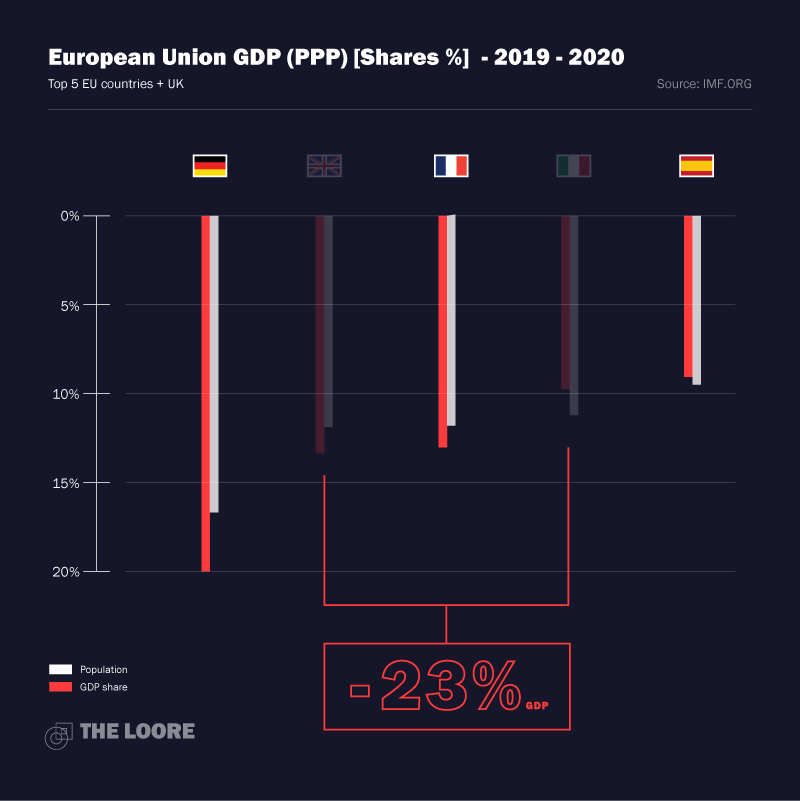“We are in the most acute phase”; echoed Italian Prime Minister Giuseppe Conte to El Pais newspaper; as the total confirmed cases of the novel coronavirus crossed the 160,000 milestone, putting to death more than 20,000 people in the country.
COVID-19; the new virus which first appeared in Wuhan, China, quickly spread to around 200 countries and territories; infecting more than 2,000,000 and wreaking havoc in its way. The UN chief alarmed the world that it is facing the worst crisis since WW2.
Businesses have shuttered their doors, leaving millions around the world out of work, with massive economic, social and political repercussions, as countries rush to enact national and local lockdowns in a bid to curb the spread of the virus.
Europe Under Lockdown
Europe is the continent worst hit by the coronavirus, as the grim tally crossed 500,000 cases with nearly 35,000 deaths. Italy and Spain, the worst-hit countries, are bearing the brunt; each having more than 100,000 confirmed cases and more than 10,000 deaths, accounting for three in every four deaths on the continent. Both countries have asked for increased support by European partners as the outbreak has brought their economies to a standstill.

Pleas for Help
Both Italy and Spain have asked for increased support by European partners in the face of this unprecedented crisis. Italian Prime Minister Guiseppe Conte is urging for a joint borrowing scheme, dubbed “coronabonds”, that would allow less developed EU nations borrow cheap loans with the richer members. Spain, Portugal and Greece have all signaled their support; however, Germany and other northern countries have drawn a red line, bluntly rejecting the idea of a shared debt scheme, threatening to divide the unity of the bloc. “One does not just trust someone else with their credit card when you don’t have the option of controlling their expenses,” head of Germany’s central bank Jens Weidmann told Le Monde.
“One does not just trust someone else with their credit card when you don’t have the option of controlling their expenses.”
Head of Germany’s central bank Jens Weidmann to Le Monde

Rising Skepticism
The rejection and reluctance of Germany and other rich EU nations to implement such a scheme and their largely moot support for Italy and Spain threatens to arouse national feelings among their citizens. “Nationalist instincts, in Italy, but also in Spain and elsewhere, will be much stronger if Europe is not up to the task,” the Italian PM said, warning that the bloc might “lose its foundations before the eyes of our citizens. Additionally, this issue has led to squabbles between European leaders, further undermining the spirit of unity which the bloc has always espoused for. Dutch Prime Minister Mark Rutte in a stark remark, said that a debt sharing scheme would mean “crossing a Rubicon” for the eurozone. This in turn garnered an angry response from the Portuguese PM Antonio Costa, slamming Rutte’s comments.; “This type of response is completely ignorant, and this recurring pettiness completely undermines what makes up the spirit of the European Union”
The rapid spread of the novel coronavirus and its impact has reverberated around the world, grounding some of the world’s largest and most developed economies to a complete standstill. Europe, the worst affected continent, is facing yet another crisis that is sure to leave a dent on its already shaky unity. A decade of piling misfortunes and subsequent responses, from the Greek debt crisis, to the migrant crisis and Brexit, has greatly undermined the unity of the bloc.

Italian Exit?
Amid the controversy surrounding EU cooperation, many reports have predicted that this could be a major watershed moment for Italy’s relationship with the bloc, and potentially kickstart and catalyze the Italian descent into increasing skepticism of its role and relationship with the European Union. According to polls conducted by news agency Dire on 12-13 March, 88 percent of Italians feel that Europe is failing to support Italy in the crisis, while only 4 percent believe that it is doing enough. And 67 percent of Italians regard EU membership as a disadvantage, up from 47 percent in November 2018.” Such scenario would be a devastating political and economic blow to the EU, which just saw one of its strongest members leave the bloc, an Italian exit would be another unprecedented blow to the European project and potentially spark an existential crisis.
Italy is the third most populous country in the EU with a share of 13.59% (~60 million) of the total (~ 446 million), with its capital Rome also being the third most populous city (proper) in the bloc. With an economy of around $2.5 trillion in GDP (PPP), it is the third largest in the union, representing around 12% of the total. Moreover, Italy contributes a big share in the annual budget and is also one of the most important contributors to EU funding.
It is safe to say that an Italian departure from the European Union will not be taken lightly at all, as Italy is a major player in the bloc economically, politically, demographically and geographically.
Can the European Union safely weather this crisis and salvage its unity?

